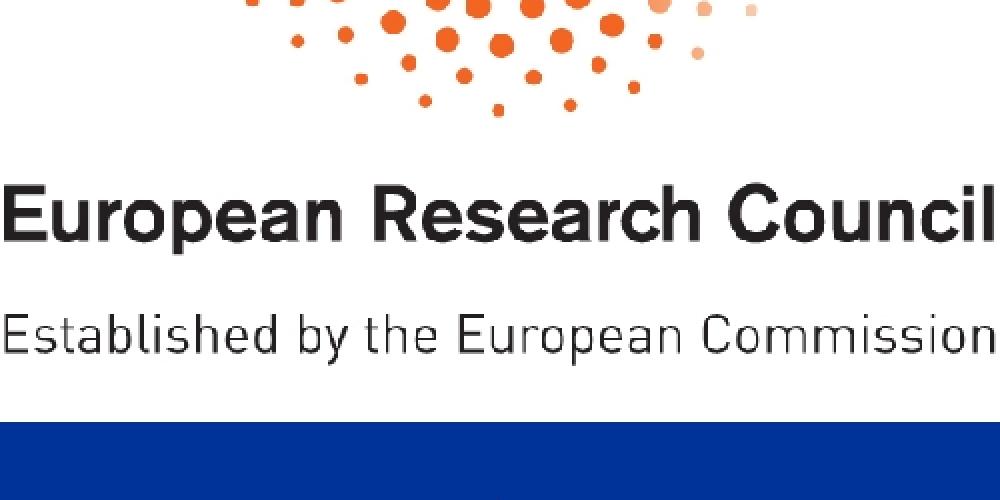
Vrije Universiteit Brussel (VUB) is welcoming three new ERC Starting Grants. Prof. Eva Swyngedouw, Prof. Willem Staels, and Dr. Tom Dendooven have been awarded these prestigious European research grants for their innovative projects. By studying, respectively, urban evictions, curative therapies for childhood diabetes, and unexplained male infertility, they not only strengthen VUB’s innovative research landscape but also contribute significantly to urgent societal and medical challenges.
Mapping inequality in the city
As an urban sociologist, Prof. Eva Swyngedouw investigates how evictions shape inequality and citizenship in the city. Her project examines the rise of what she calls urban eviction regimes: the interplay of regulation, policy, and moral discourses around evictions, enacted by institutions such as police, bailiffs, and social services in European cities.
The research takes place in Brussels, Amsterdam, Barcelona, and Thessaloniki – four cities with very different housing traditions. Using both quantitative and qualitative methods, the project maps where and among whom evictions occur, and what consequences they have for affected families. In addition to analyzing thousands of rulings, the team conducts observations and interviews with both implementing actors and residents at risk of losing their homes.
“The social urgency is high,” says Swyngedouw. “In Brussels alone, there are on average eleven court-ordered evictions per day. One in four affected people ends up in long-term homelessness.” Swyngedouw aims to show that evictions are more than individual tragedies: they are a symptom of the broader housing crisis and a key driver of social inequality. With the ERC grant, she will be able to build an international team over the next five years and carry out a unique comparative research program.
Towards curative therapies for childhood diabetes
Pediatric endocrinologist Prof. Willem Staels (Beta Cell Neogenesis Research Group, Department of Pediatrics UZBrussel) focuses his ERC project on another pressing challenge: the rise of diabetes in children. In Belgium, more than 3,300 children already live with type 1 diabetes, while type 2 – once called “adult-onset diabetes” – now even occurs in primary school children.
His research centers on the beta cell, the insulin-producing cell destroyed by the immune system in type 1 and exhausted by overwork in type 2. Current treatments are lifelong and only alleviate symptoms. Staels and his team are investigating how beta cells can be repaired, strengthened, or replaced so that the body can once again regulate blood sugar on its own.
A promising avenue is stem cell therapy, where new beta cells are developed in the lab. Here, iron metabolism also plays a key role: iron appears not only to be a building block but also a “fuel” essential for the function and lifespan of the cells. By optimizing these metabolic processes, the researchers hope to move from chronic care toward lasting cures.
The societal impact of this work is hard to overstate. Diabetes constantly affects the daily lives of children and their families and, in the long run, causes severe complications. With the ERC grant, Staels will assemble an international team and bridge the gap between laboratory and clinic. “Insulin saves lives but does not cure,” says Staels. “We want a future where children are no longer dependent on lifelong therapy, but can live freely again.”
The role of the sperm centrosome in male infertility
Dr. Tom Dendooven (VUB-VIB) focuses his ERC project CentRed (Centrosome Reduction) on a third major health issue: unexplained male infertility. Worldwide, 17% of couples face fertility problems. In one out of three cases, the cause remains unknown, often because the embryo is lost at a very early stage due to faulty cell divisions.
Increasing evidence points to the sperm centrosome, a paternal organelle essential for the embryo’s first cell division. Dendooven’s hypothesis is that this centrosome undergoes a profound transformation during spermatogenesis – centrosome reduction – and that errors in this process may cause embryonic loss and infertility.
Using a multidisciplinary approach – from in situ structural biology and histology to biochemical testing – his team aims to map the molecular changes during this reduction, establish a timeline of the process, and develop an in vitro assay to test centrosome function in sperm from fertile and infertile men.
This pioneering work is the first molecular study to fundamentally unravel the role of the sperm centrosome. In the longer term, it may lead to new diagnostic strategies for unexplained male infertility and improve treatment options for many couples worldwide.
Three times European top-notch research in Brussels
With the award of three ERC Starting Grants, VUB confirms its position as a breeding ground for innovative, socially relevant research. While Swyngedouw unravels the mechanisms behind urban inequality, Staels seeks ways to cure childhood diabetes, and Dendooven uncovers the molecular basis of unexplained male infertility. Together, they demonstrate the power of groundbreaking science in the heart of Brussels.